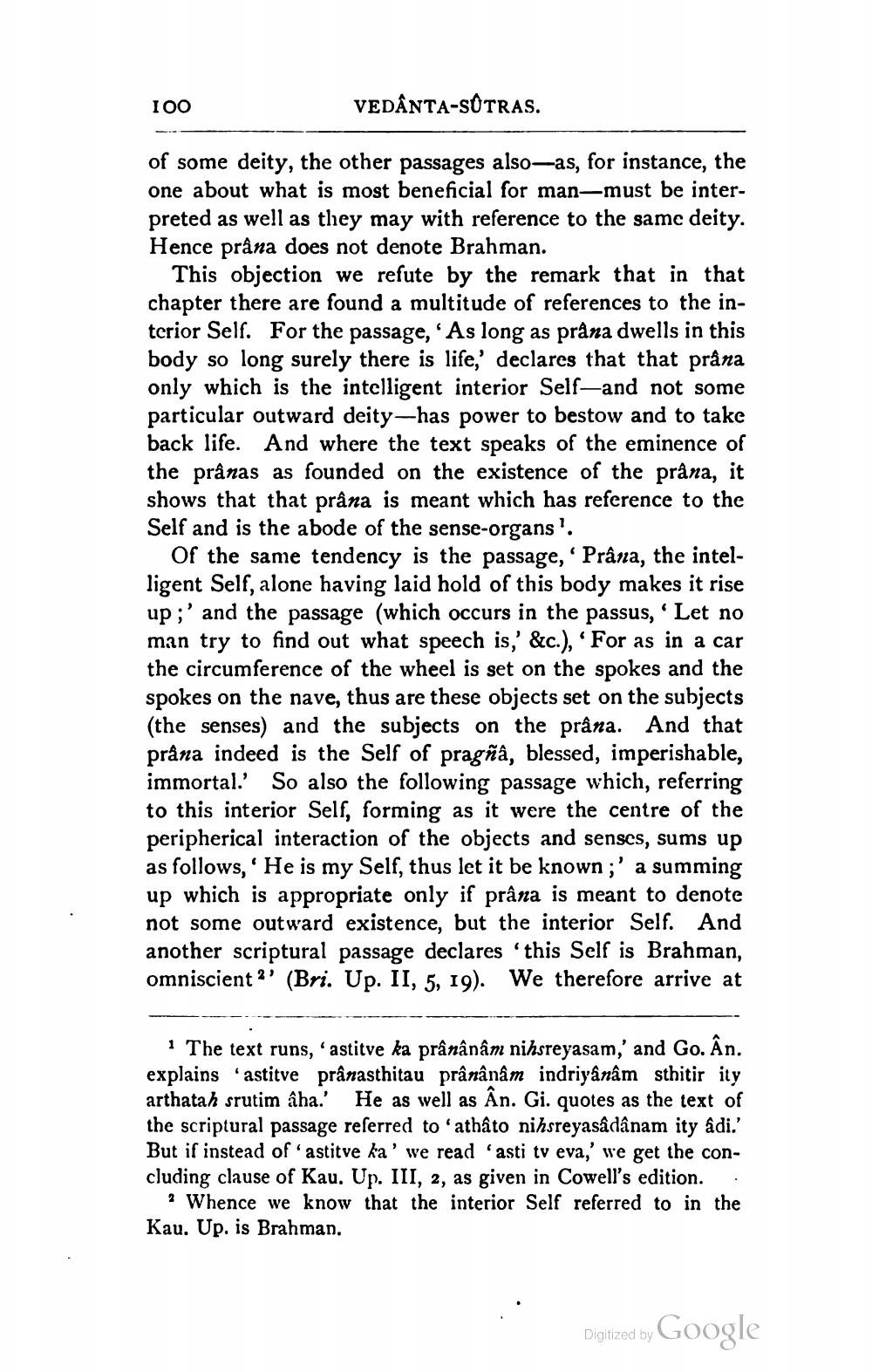________________
100
VEDÂNTA-SOTRAS.
of some deity, the other passages also-as, for instance, the one about what is most beneficial for man-must be interpreted as well as they may with reference to the same deity. Hence prâna does not denote Brahman.
This objection we refute by the remark that in that chapter there are found a multitude of references to the interior Self. For the passage, As long as prana dwells in this body so long surely there is life,' declares that that prâna only which is the intelligent interior Self-and not some particular outward deity-has power to bestow and to take back life. And where the text speaks of the eminence of the prânas as founded on the existence of the prâna, it shows that that prâna is meant which has reference to the Self and is the abode of the sense-organs'.
Of the same tendency is the passage, Prâna, the intelligent Self, alone having laid hold of this body makes it rise up;' and the passage (which occurs in the passus, 'Let no man try to find out what speech is,' &c.), 'For as in a car the circumference of the wheel is set on the spokes and the spokes on the nave, thus are these objects set on the subjects (the senses) and the subjects on the prâna. And that pråna indeed is the Self of pragña, blessed, imperishable, immortal.' So also the following passage which, referring to this interior Self, forming as it were the centre of the peripherical interaction of the objects and senses, sums up as follows, ' He is my Self, thus let it be known ;' a summing up which is appropriate only if prâna is meant to denote not some outward existence, but the interior Self. And another scriptural passage declares 'this Self is Brahman, omniscient ?' (Bri. Up. II, 5, 19). We therefore arrive at
The text runs, 'astitve ka prânânâm nihsreyasam,' and Go. Ân. explains 'astitve prânasthitau prânânâm indriyânâm sthitir ity arthatah srutim aha. He as well as Ân. Gi. quotes as the text of the scriptural passage referred to 'athậto nihsreyasâdânam ity adi.' But if instead of astitve ka' we read 'asti tv eva,' we get the concluding clause of Kau. Up. III, 2, as given in Cowell's edition. .
? Whence we know that the interior Self referred to in the Kau. Up.is Brahman.
Digitized by Google
Digitized by




